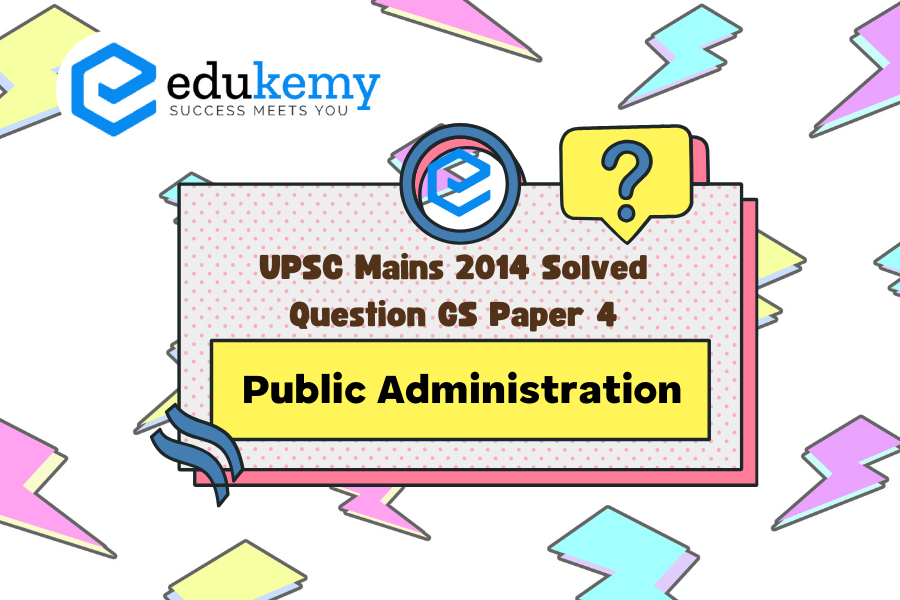Ethics serves as the guiding principle for human conduct, aiming to foster values such as fairness, honesty, integrity, and respect for others in all aspects of life. In the realm of Public Administration, ethics assumes a paramount significance due to its pivotal role in ensuring accountability, transparency, and the responsible use of power and resources. At its core, ethics seeks to promote the common good and uphold the dignity and rights of individuals within society. In the context of Public Administration, where decisions often have far-reaching implications for the well-being of communities and the allocation of public resources, ethical considerations become indispensable. Without a strong ethical foundation, Public Administration risks deviating from its purpose of serving the public interest and may succumb to corruption, nepotism, or favoritism. Thus, ethics in Public Administration serves as a safeguard against abuse of power and promotes trust between government institutions and the citizens they serve, ultimately fostering a more just and equitable society.
Tag: Public/Civil service values and Ethics in Public administration.
Contents
Decoding the Question:
- In Introduction, try to start your answer with a brief introduction on ethics.
- In Body,
- First, mention things ethics seek to promote in human life.
- Second, discuss the importance of ethics in Public Administration.
- In Conclusion, try to end the answer by giving suitable examples.
Answer:
Ethics is a set of standards that society places on itself and which helps guide behaviors, choices and actions. Ethics seeks to improve human lives. The ethical principles help one to attain what is best. It helps a person to perfect himself/ herself as a moral being. For the functioning of any society we need certain rules and regulations. The institutions which are designed to make life easier and better for humankind cannot function without certain ethical principles. Ethics aims to provide us with a common point of view from which we can come to agreement about what all of us ought to do. It tries to discover a more objective standpoint of evaluation than that of purely personal preference.
Importance of Ethics in Public Administration: Public administration involves the public service which upholds the trust of people. If public administration is devoid of ethics, a society and nation is bound to fail. The importance of ethics lies in the fact that it ensure the foundational values of public administration:
- Transparency: An administrator makes decisions and implement them in a transparent manner. It brings openness for those who can get affected by decisions. Transparency is the first step to ensure accountability.
- Responsibility and Accountability: To ensure that public service roles are taken with ownership.
- Work Commitment: Committed to duties and performing with involvement as Swami Vivekananda had observed: “Every duty is holy and devotion to duty is the highest form of worship.” This would also entail a respect for time, punctuality and fulfillment of promises made.
- Compassion: A public servant, without violating the laws , needs to demonstrate compassion for the poor, and the vulnerable while using discretion in making decisions.
- Justice: Those responsible for formulation and execution of policies and decisions of governance need to ensure the principles of equality, equity, fairness, impartiality and objectivity and no special favours are doled out on the criteria of status, position, power, gender, class, caste or wealth.
- Integrity and Probity: Corruption is the biggest challenge today. Integrity can ensure that such malpractices are curbed in public administration. Probity takes a step further to have sustained corruption free and value rich administrative ecosystems.
Public administration should aim at serving people.This implies that administrators need an ethical orientation for sympathetically and earnestly helping people at large. Public administration involves constant decision-making. As diverse interests are involved in them,qualities of objectivity,open mindedness, evenhandedness and adherence to norms are crucial. Misconduct, abuse of power and self-aggrandizement have to be shunned. Hence Ethics Is critical in public life.
In case you still have your doubts, contact us on 9811333901.
For UPSC Prelims Resources, Click here
For Daily Updates and Study Material:
Join our Telegram Channel – Edukemy for IAS
- 1. Learn through Videos – here
- 2. Be Exam Ready by Practicing Daily MCQs – here
- 3. Daily Newsletter – Get all your Current Affairs Covered – here
- 4. Mains Answer Writing Practice – here


